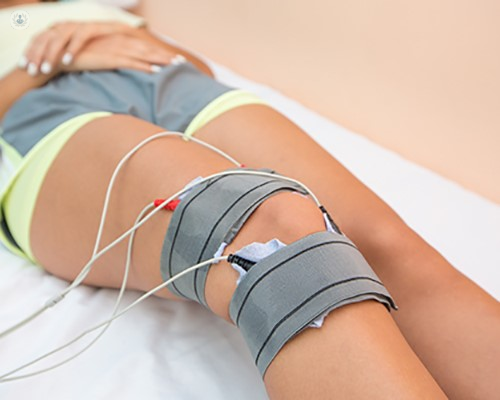Physiotherapy for knee arthritis: A closer look
Written by:Living with knee osteoarthritis can be tough, making it essential to find effective ways to manage the condition. One potential solution under consideration is physiotherapy. In his latest online article, Mr Muhammad Adeel Akhtar takes a closer look at the practical aspects of how physiotherapy might help in slowing down the progression of knee osteoarthritis, tailoring approaches for individuals, improving daily functions, and how it compares to other treatments.

Can physiotherapy help slow the progression of knee osteoarthritis?
Improving muscle strength and preventing excessive strain on the knee joint not only contributes to improved proprioception and increased range of motion but also helps to slow the progression of the disease. Most importantly, these measures play a crucial role in effectively managing symptoms.
Is there an "ideal" physiotherapy approach for all knee arthritis cases, or does it vary depending on individual factors?
While general physiotherapy guidance on range of movement and quadriceps muscle strengthening can benefit everyone, a more effective outcome can be achieved through a formal assessment of knee arthritis, coupled with an individualised approach. This tailored strategy ensures compliance with specific exercises, taking into account factors such as pain tolerance. For instance, while a particular exercise may be highly effective in building muscle strength, its utility diminishes if the patient finds it too painful, potentially leading to counterproductive muscle inhibitions as a result of pain.
Can physiotherapy help regain lost mobility and function in daily activities for people with knee arthritis?
Physiotherapy can certainly help to improve function and carry on with daily activities. The key factor however, is compliance which can be effected by a number of patient related factors like pain, time commitment, expectations and pre conceived ideas.
How does physiotherapy compare to other treatment options for knee arthritis, such as medication or surgery?
Physiotherapy should be considered as an adjunct rather than a replacement to other treatment options in the form of medications and surgery. Patients are encouraged to explore non-operative treatments fully before considering surgery. In both non-operative and operative scenarios, incorporating physiotherapy maximises the benefits for the patient.
What are the potential risks or limitations associated with physiotherapy for knee arthritis?
The primary obstacle is managing pain, which often requires medications or injections to enable patients to endure repetitive muscle strengthening and range of motion exercises. In cases where physiotherapy exacerbates pain, despite optimal pain control, patients should steer clear of specific exercises to prevent muscle inhibition caused by pain. Consistent adherence to physiotherapy is crucial for success, as muscles can revert to a weakened state due to arthritis and pain if the exercises are not performed regularly, leading to the failure of this treatment approach.
Mr Muhammad Adeel Akhtar is an esteemed orthopaedic surgeon. You can schedule an appointment with Mr Akhtar on his Top Doctors profile.


